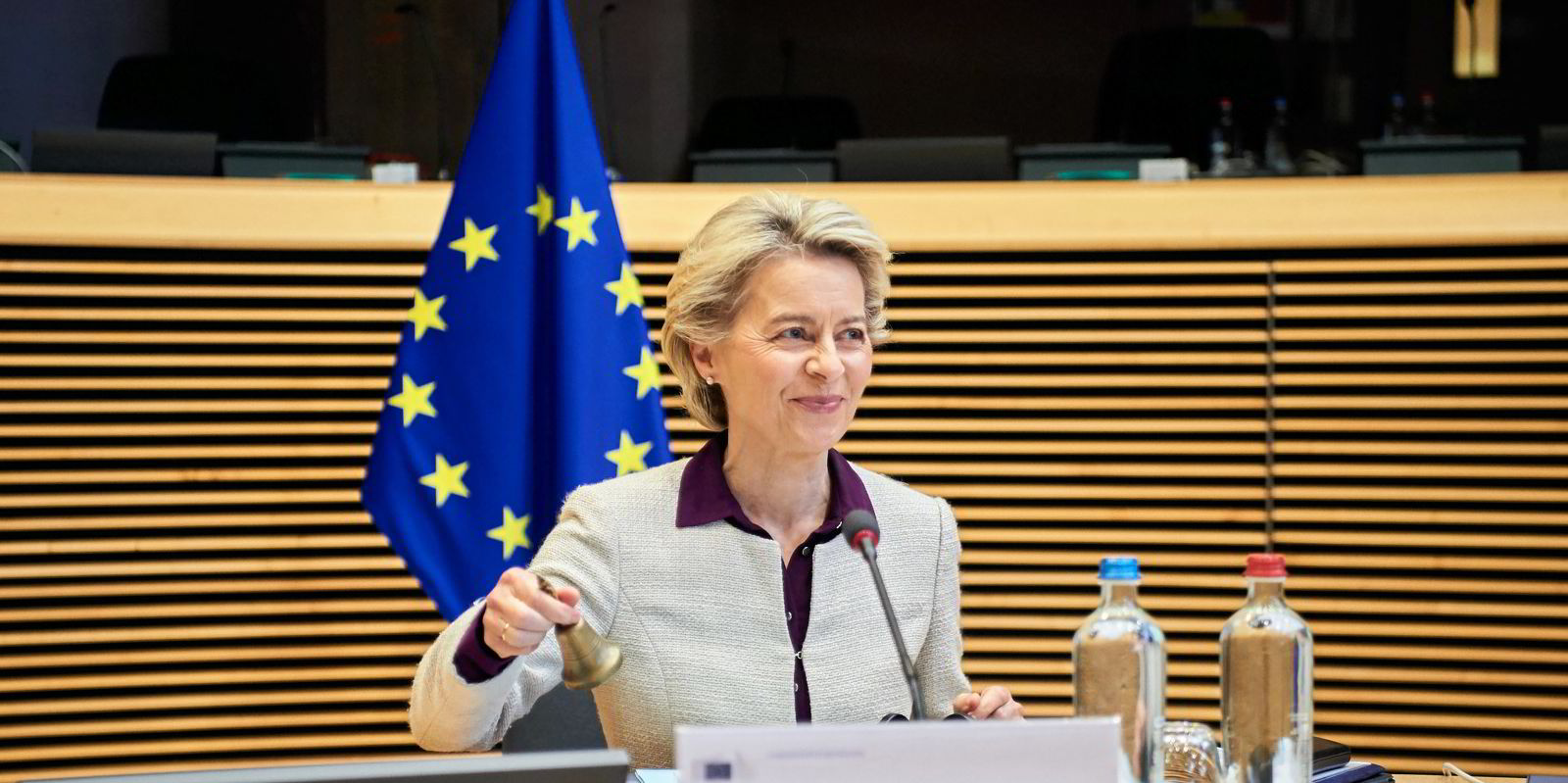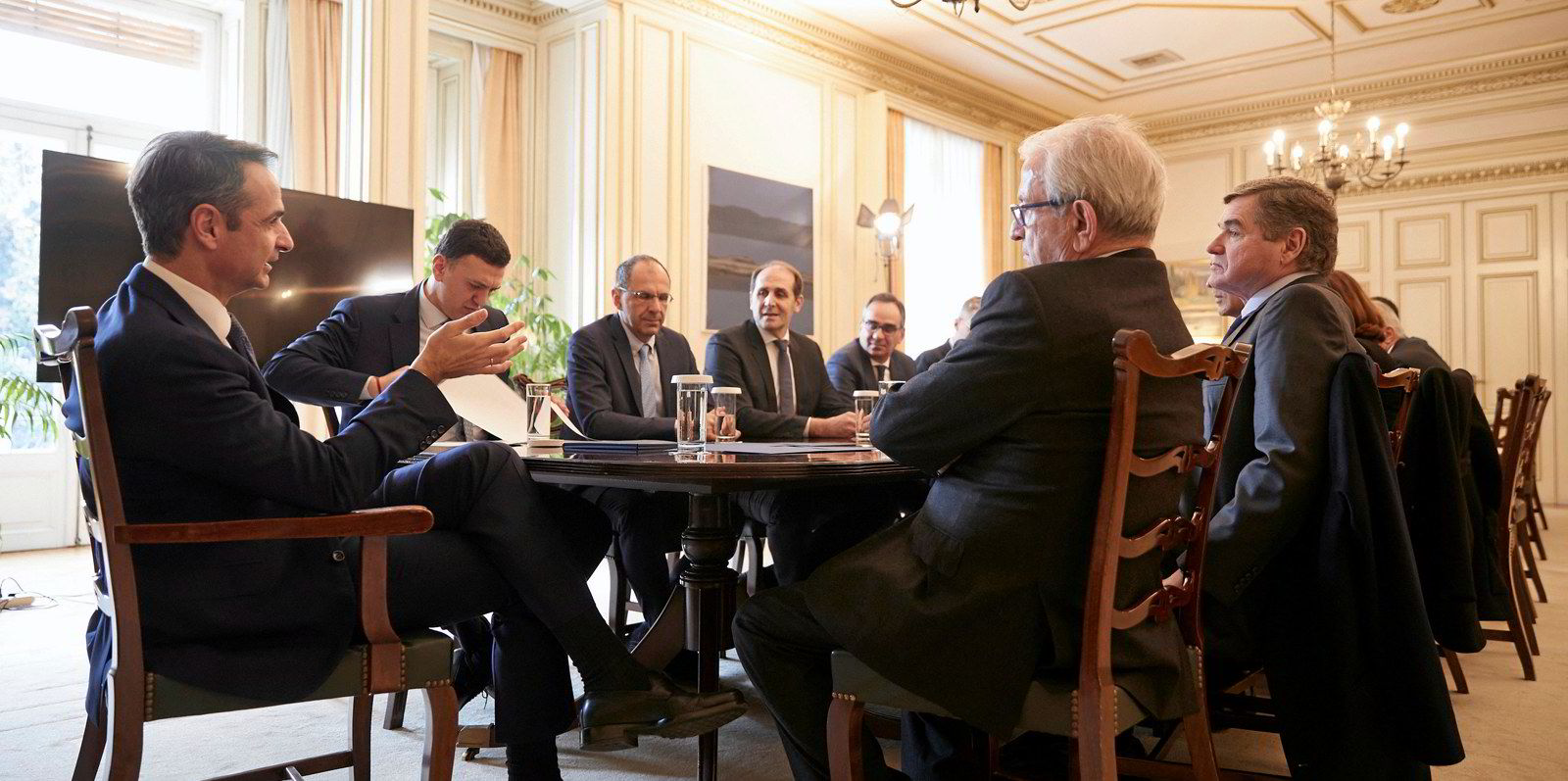Greece's government has closed ranks with its shipowners to argue that shipping needs more time and research to decarbonise.
"[…] The long life-cycle of fleets and the sheer scale of the technological transformation required… imply a slower green transition in maritime transport compared to other sectors," Greek Prime Minister Kyriakos Mitsotakis told European Union authorities in a letter dated 19 October.
Furthermore, far more research is needed before any regulatory decisions about a meaningful emission reduction are taken, he added in the document published in the Kathimerini newspaper.
"Decisive reductions in GH [greenhouse gas] emissions in maritime transport will not be feasible in the absence of mature and available-at-scale technological solutions," Mitsotakis explained in the letter addressed to European Commission President Ursula von der Leyen.
To come up with such solutions, the Greek leader urged Von der Leyen to immediately set up an EU-financed "Research Centre for Alternative Marine Fuels and Technologies".
Mitsotakis also reiterated long-standing concerns about plans to include shipping in the EU's Emissions Trading System (EU-ETS).
While stopping short from opposing the measure, Mitsotakis said the EU-ETS, which forms part of the bloc’s ambitious "Fit for 55" carbon-reduction package, must be "fair and proportionate", with revenues allocated proportionally to member states' shares in total EU maritime emissions and eventually ploughed back into decarbonisation efforts.
"Fit for 55" should be "realistic", maintaining the EU's competitiveness as a shipping hub and protect shipowners from ending up with stranded assets, said Mitsotakis, whose country is home to 58% of the EU-owned and nearly one-fifth of the entire global fleet.

Weak position
However, Greece's position as a shipping powerhouse is not reflected in the EU's internal decision-making process, in which the relatively small country is easily outvoted by peers such as Germany and France, which push for quick decarbonisation.
Nevertheless, Mitsotakis' position is characteristic for his determination to fight his shipowners’ corner at United Nations climate talks in the UK next month and during internal EU horsetrading that will see the EU-ETS take its final shape.
The Greek leader acknowledged in the letter that he jointly developed his position in cooperation with the Union of Greek Shipowners (UGS).
Unsurprisingly, on 20 October, the UGS expressed its support for an EU-financed research centre.
"The UGS has consistently advocated that no technology is currently available at the scale required to deliver substantial reductions in greenhouse gas [GHG] emissions from ships," it said in the statement.
Greek shipowners' fear to lose millions in investments from any regulatory changes they deem premature was palpable in a Marine Money conference in Athens on Wednesday.
"It's dangerous to say there isn’t much time left [for decarbonisation] ... you can't push owners," said Harrys Kosmatos, corporate development officer at Tsakos Energy Navigation (TEN), on a panel.
In September, TEN ordered up to six dual-fuel newbuilding tankers at Deahen Shipbuilding in a deal worth $450m.
"We shouldn’t rush into any decisions that will potentially render vessels obsolete in 10 years from now," Kosmatos said.



